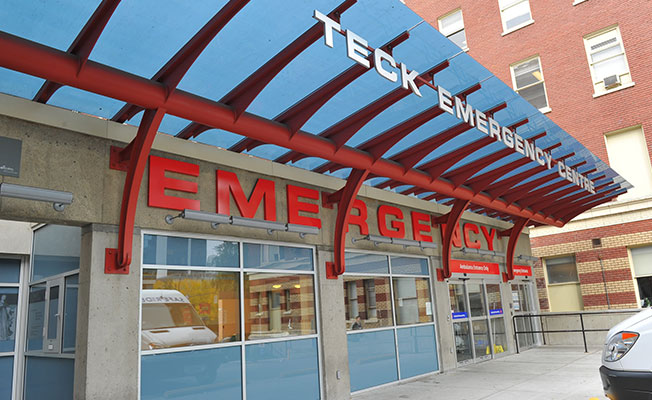An innovative new interventional clinical trial is launching in the St. Paul’s Hospital (SPH) emergency department this week (June 11).
The Rapid Agitation Control with Ketamine in the Emergency Department (RACKED) Study will compare the effectiveness of intramuscular ketamine to a standard combination of intramuscular medications in patients presenting to the emergency department (ED) with agitation and violent behaviour.
ED physician David Barbic will lead the study, which is funded by the St. Paul’s Emergency Department Research Fund, the Canadian Association of Emergency Physicians, and PHCRI. CHÉOS Scientists Drs. Brian Grunau and Hubert Wong are co-investigators on the team. CHÉOS will also provide of project management, regulatory affairs, data management, programming, and statistical support.
When patients arrive at the emergency department (ED) agitated, aggressive, and with potentially violent behaviour, it is paramount to find a way to address the situation quickly for the safety of patients and ED staff. Patients may be suffering from mental health crises, substance misuse, severe infections, or trauma, and caring for them and other patients is a primary concern for ED staff. This randomized control trial investigates the use of intramuscular (IM) ketamine compared to current standard care medications for the rapid and safe control of patients in the ED who present to the ED with aggression or violent behaviour.
“We see patients presenting to the ED agitated, aggressive, and with potentially violent behavior every day,” said Dr. Barbic “Intramuscular ketamine may provide a faster and safer way to provide sedation and behaviour control to keep these patients and ED staff safe.”
The RACKED study will enroll 184 patients in the SPH ED; participants will be randomized to receive either ketamine or a combination of midazolam (a benzodiazepine) and haloperidol (a typical antipsychotic). All investigators and study staff, excluding the study nurse administering treatment, will be blinded to the group allocation.
“This study is unique in that the REB [Research Ethics Board] has waived the need for consent from study participants,” added Dr. Barbic.
Patients in these scenarios are often intoxicated or suffering from severe mental health crises and lack the capacity to provide informed refusal of care. The standard of care in these cases is immediate sedation, which carries with it some risk. The UBC PHC REB agreed to waive the need for consent due to these factors and a number of others (TCPS, Article 3.8).
The primary outcome is time to adequate behaviour control, measured using the Richmond Agitation Sedation Scale. Secondary outcomes include the safety and tolerability of ketamine, rates of side effects, and the requirement of other medications to achieve sedation.
This study will fill a knowledge gap that exists for the utility of ketamine in the ED. The RACKED study is more methodologically robust than past studies in this area, which were retrospective and lacked control groups.
The RACKED study includes over 40 investigators, more than 20 research assistants, and dozens of study nurses, making it one of the larger study teams to work on a clinical trial at SPH. For more information about the study, visit clinicaltrials.gov.



